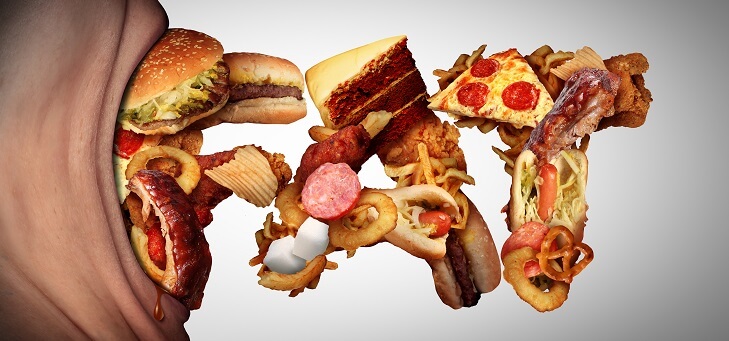Most of us crave fatty foods at one time or another, and now new research has uncovered a connection between your brain and gut that appears to be responsible.
If you’ve ever been on a diet, you’ll know how hard it can be to stick to your meal plan and not deviate when something catches your eye. Most dieters would blame their tastebuds. But it turns out it’s not actually the taste of these foods that you’re attracted to.
In a paper published in the journal Nature, researchers from Columbia University report that cravings for high-fat foods are driven by a signal from your intestines to your brain.
The signal is triggered by fat entering your intestines, meaning that eating fatty foods will trigger cravings. The research team hopes this finding can be used to address the global obesity crisis by developing strategies that interfere with this signal.
Read: Five tips for losing belly fat
“We live in unprecedented times, in which the overconsumption of fats and sugars is causing an epidemic of obesity and metabolic disorders,” says Professor Mengtong Li, lead author of the study.
“If we want to control our insatiable desire for fat, science is showing us that the key conduit driving these cravings is a connection between the gut and the brain.”
Indeed, around 67 per cent of all Australian adults could be classed as overweight or obese. This amounts to about 12.5 million people. If current trends continue, more than 18 million Australians will be considered obese by 2030.
Read: Can you be overweight and healthy?
Prof. Li and her team measured the brain activity of mice while they were fed fat and found neurons in one particular region of the brain would light up each time they ate fat. On further investigation, they found the brain region was being activated by two groups of endothelial cells in the intestines.
“One group of cells functions as a general sensor of essential nutrients, responding not only to fat, but also to sugars and amino acids,” says Prof. Li.
“The other group responds to only fat, potentially helping the brain distinguish fats from other substances in the gut.”
Read: Ultra-processed foods increase cancer risk in men
Once identified, Prof. Li’s team used drugs to shut down the signals from these cells and the mice promptly lost their appetite for fat.
Professor Charles S. Zuker, another member of the research team, says this development could lead to a suite of novel weight-loss methods.
“The overconsumption of cheap, highly processed foods rich in sugar and fat is having a devastating impact on human health,” he says.
“The better we understand how these foods hijack the biological machinery underlying taste and the gut-brain axis, the more opportunity we will have to intervene.”
Do you sometimes crave fatty foods? Do you resist or give in? Share your thoughts in the comments section below.
If you enjoy our content, don’t keep it to yourself. Share our free eNews with your friends and encourage them to sign up.


I doubt it is just fat. How many people do you know who would sit down to a shot of olive oil or a teaspoon of butter or lard? Yet those same people will easily scoff their way through a bag of chips or a packet of biscuits or a bar of chocolate, rashers of bacon. The fat would have to come wrapped in something and it is also known that sugar and salt provide that wrapping. Far fewer people would be ‘craving’ raw unsalted nuts, raw olives or even avocado straight up all of which would ‘satify’ a pure fat craving without the dressing!